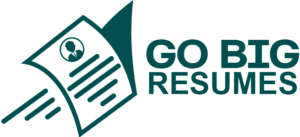The Perfect Resume for Engineering Students – Examples, Templates, and Tips to Launch Your Career

 Written by
Written by

Understanding the Importance of a Strong Resume
Creating a compelling resume is essential for engineering students eager to kickstart their professional journey. Whether you’re a fresh graduate with no work experience or an aspiring civil engineer with academic projects under your belt, knowing how to showcase your skills and achievements effectively can make all the difference. This comprehensive guide delves into resume examples for engineering students, offering insights into crafting standout resumes that open doors to internships, entry-level positions, and future career opportunities. From tailored templates to specific discipline-focused samples, you’ll find everything you need to develop a good resume for engineering students and stand out in a competitive job market.
The Role of a Resume in an Engineering Career
A resume serves as the initial impression you make on potential employers. For engineering students, it’s more than just a list of qualifications; it’s a strategic marketing tool designed to highlight your technical skills, academic background, extracurricular involvement, and problem-solving capabilities. In the highly specialized field of engineering, where practical knowledge and innovative thinking are valued, your resume must communicate not only what you’ve learned but also how you apply it.
The impact of a well-structured resume cannot be overstated. It acts as your personal branding document, shaping recruiters’ perceptions and influencing their decision to invite you for interviews. When crafted effectively, your resume demonstrates your potential, adaptability, and readiness to contribute to engineering projects. Conversely, a poorly organized or generic resume risks being overlooked, regardless of your academic achievements or passion for the field.
Key Elements of an Engineering Resume
Creating a compelling engineering resume requires attention to several core components. These elements should be tailored to reflect your unique background, skills, and aspirations.
Contact Information
Your contact details are the gateway for potential employers to reach you. Include your full name, phone number, professional email address, and LinkedIn profile if available. Make sure your email sounds professional—avoid nicknames or unprofessional handles. Additionally, if applicable, include your GitHub or portfolio links showcasing your projects or software proficiency.
Education Background
As most engineering students are either still pursuing or recently completed their degrees, this section should be prominent. Include your university name, degree program, expected or actual graduation date, and relevant coursework or academic honors. Highlighting academic projects or research can add value here, especially if you lack extensive work experience.
Relevant Experiences
Internships, part-time jobs, volunteer work, or project-based experiences should be presented clearly. Focus on quantifiable achievements and responsibility levels. Use action verbs and describe how your contributions impacted the project or organization. Even academic projects can be framed as real-world experience to illustrate practical application.
Skills and Certifications
List technical skills such as CAD software, programming languages, or laboratory techniques relevant to your field. Certifications like AutoCAD, MATLAB, Six Sigma, or language proficiency can set you apart. Be honest about your skill levels and provide context if necessary.
Tailoring Your Resume to Different Engineering Fields
Each engineering discipline has distinct expectations and skill requirements. Customizing your resume ensures you align with industry standards and employer needs.
Differences Between Various Engineering Disciplines
Civil, mechanical, electrical, computer, and chemical engineering each demand specific skills and experiences. For example, civil engineering resumes often emphasize project management and site work, while computer engineering focuses more on coding, software development, and hardware integration.
Importance of Customization Based on Job Role
Generic resumes tend to be less effective. Instead, analyze the job description carefully, identify keywords and key competencies, and tailor your resume accordingly. Highlight relevant academic projects, internships, or certifications that directly align with the role. Personalize your career objectives to demonstrate your enthusiasm for the particular field or position.
Resume Examples for Engineering Students with No Work Experience
Highlighting Academic Projects
When lacking formal work experience, academic projects become your primary showcase of abilities. They demonstrate your practical application of theoretical knowledge, problem-solving skills, and teamwork.
How to Present Academic Projects Effectively
Describe each project with clear objectives, your specific role, tools used, and outcomes achieved. Quantify results whenever possible—for instance, “Designed a sustainable water filtration system reducing costs by 20%.” Emphasize challenges faced and how you addressed them, illustrating your analytical and technical skills.
Examples of Strong Project Descriptions
- “Led a team of four students in designing a solar-powered charging station, utilizing Arduino microcontrollers, which received recognition at the university innovation fair.”
- “Developed a structural model for a pedestrian bridge demonstrating compliance with safety standards, employing SAP2000 software.”
Showcasing Technical Skills
Technical proficiency is often the first criterion recruiters assess. For students with no formal work experience, this section becomes critical.
List of Relevant Technical Skills
Include software tools like AutoCAD, SolidWorks, MATLAB, or Python. Also mention laboratory techniques, testing procedures, or hardware prototyping skills. Group related skills for clarity, using bullet points for easy scanning.
Best Practices for Demonstrating Software Proficiency
Instead of simply listing skills, integrate them into descriptions of projects or coursework. For example, “Utilized MATLAB to simulate control systems,” or “Created detailed design drawings using AutoCAD.” This contextualizes your proficiency and shows practical application.
Utilizing Extracurricular Activities
Participation outside academics can reveal qualities like leadership, initiative, and teamwork.
How to Leverage Involvement in Student Organizations
Highlight roles in engineering clubs, societies, or volunteer initiatives. Describe responsibilities, events organized, or competitions participated in. For instance, “Served as secretary for the Robotics Club, coordinating weekly meetings and leading project development.”
Examples of Leadership Experiences and Their Benefits
Leadership roles demonstrate your ability to manage teams and handle responsibilities beyond academics. Mention awards or recognitions received within these activities to further strengthen your profile.

Resume Templates for Engineering Students
Types of Resume Formats
Choosing the right format ensures your resume presents your information logically and professionally. Each format has its advantages suited to different profiles.
Chronological vs. Functional vs. Combination
- Chronological: Lists experiences starting from the most recent. Best if you have consistent internship or project experience.
- Functional: Focuses on skills and competencies rather than timeline. Suitable if you want to emphasize technical skills over experience gaps.
- Combination: Merges both approaches, highlighting skills upfront followed by a chronological listing of experiences. Ideal for students with diverse skills and some experience.
Advantages and Disadvantages of Each Format
Understanding these helps tailor your resume effectively:
Format | Pros | Cons |
Chronological | Clear career progression | May expose experience gaps |
Functional | Highlights skills | Can seem vague or evasive |
Combination | Balanced view | Slightly complex layout |
Free Downloadable Resume Templates
Numerous online resources provide free templates specifically designed for engineering students, ensuring professional appearance without cost.
Where to Find Free Templates
Websites like Canva, Novoresume, and Indeed offer customizable, ATS-friendly templates. University career centers often host downloadable templates or provide guidance.
Features to Look for in a Good Resume Template
- Clean, uncluttered design
- Clear section headings
- Space for key areas like skills, projects, certifications
- Compatibility with applicant tracking systems (ATS)
- Easy customization options
Specialized Resume Examples for Different Engineering Disciplines
Computer Engineering Resume Examples
Computer engineering combines hardware and software skills. A resume tailored to this field should emphasize programming languages, software development, and hardware knowledge.
Key Components Specific to Computer Engineering Roles
- Programming skills: C++, Java, Python, etc.
- Hardware knowledge: microcontrollers, embedded systems
- Software development experience: app or system development
- Certifications: Cisco CCNA, AWS Certified Solutions Architect
Notable Skills and Certifications to Include
Highlight familiarity with operating systems, network security, or cloud platforms. Certifications validate your expertise and commitment.
Civil Engineering Resume Samples
Civil engineering resumes often focus on project management, structural design, and site supervision skills.
Essential Sections in a Civil Engineering Resume
- Project descriptions with technical details
- Construction management and safety protocols
- Environmental considerations and sustainability projects
Examples of Achievements and Projects
- Managed construction of a 10-km highway project, ensuring timely completion under budget
- Designed a community park layout with eco-friendly features, recognized by the local municipality
Internship Resume Samples for Engineering Students
Internships provide vital industry exposure. Highlighting internship experiences effectively can boost your chances.
Importance of Internships for Gaining Experience
Internships bridge the gap between academic learning and real-world application, demonstrating your readiness for professional roles and familiarizing you with industry standards.
Strategies for Highlighting Internship-Related Skills and Experiences
Focus on responsibilities, technologies used, and outcomes. Use metrics to quantify your contribution and describe how you added value.

Writing Effective Resume Objectives and Summaries
Resume Objective Examples for Engineering Students
A compelling objective succinctly states your career goals and how you aim to contribute.
- “Motivated mechanical engineering student seeking an internship to apply design and analysis skills in a challenging environment.”
- “Enthusiastic civil engineering graduate aiming to leverage academic knowledge and project experience in infrastructure development.”
Resume Summary Examples for Engineering Graduates
Summaries provide an overview of your qualifications, ideally tailored to the role.
- “Detail-oriented electrical engineering graduate with hands-on experience in circuit design, software simulation, and team-led project execution. Adept at troubleshooting and innovative problem-solving.”
- “Computer engineering student proficient in programming, hardware integration, and cloud computing, with a passion for developing scalable solutions.”
Additional Tips for a Good Resume
Focusing on Problem-Solving and Team Collaboration
Engineering employers value candidates who can think critically and collaborate effectively. Incorporate these qualities by describing specific instances where you solved complex problems or worked successfully in teams.
How to Incorporate These Skills
Use action verbs like “analyzed,” “designed,” “coordinated,” and phrases such as “Led a team to…” or “Resolved critical issues by…” This approach makes your skills tangible.
Highlighting Certifications and Licenses
Certifications validate your technical expertise and dedication. List relevant ones prominently, providing brief context if necessary.
Finalizing Your Resume
Before submitting, proofread meticulously to avoid typos or grammatical errors. Seek feedback from mentors or peers and ensure consistent formatting. Use professional fonts, adequate spacing, and clear headings to enhance readability.
Conclusion
A well-crafted resume is fundamental in launching your engineering career, acting as your personal ambassador to potential employers. By understanding how to structure your resume, choosing appropriate formats, and tailoring content to your specific discipline, you can significantly increase your chances of securing internships, entry-level roles, and future opportunities. Utilizing sample resume examples for engineering students, leveraging free templates, and emphasizing academic projects, technical skills, leadership, and certifications will help you stand out in a competitive landscape. Remember, your resume is not just a document—it’s a reflection of your potential, preparedness, and professionalism in the engineering world.
Lorem ipsum dolor sit amet, consectetur adipiscing elit. Ut elit tellus, luctus nec ullamcorper mattis, pulvinar dapibus leo.
FAQS
The best resume templates for job seekers in 2025 are clean, professional, and ATS-friendly (Applicant Tracking System friendly). Popular platforms offering these include Microsoft Create, Canva, and Resume.io.
An ATS-friendly resume template uses simple formatting, standard fonts, and clear section headings so that it can be easily read by Applicant Tracking Systems. Templates on platforms like Resume.io and Enhancv are specifically designed for this.
Yes many platforms like Microsoft Create, Canva, Zety, and Novoresume offer free and customizable resume templates you can download and edit as per your needs.
The Chronological format is often the most effective for job seekers because it organizes your work history by date, making it easy for recruiters to follow your career progression. However, for career changers or those with gaps, a Combination format can be a better option.
Absolutely using different templates for different job applications can be a smart strategy, especially if you're applying across industries or job types. Tailoring your resume to each employer improves your chances of getting noticed.
Services
Subscribe to our newsletter
© 2025 Go Big Resumes powered by inceptasquare.com

